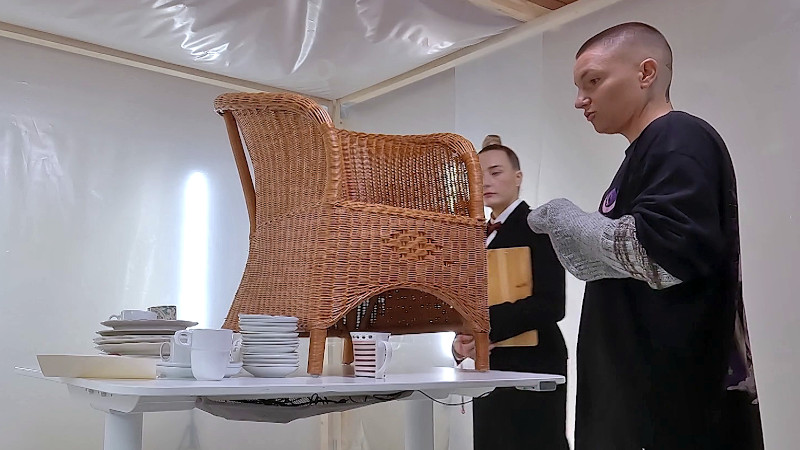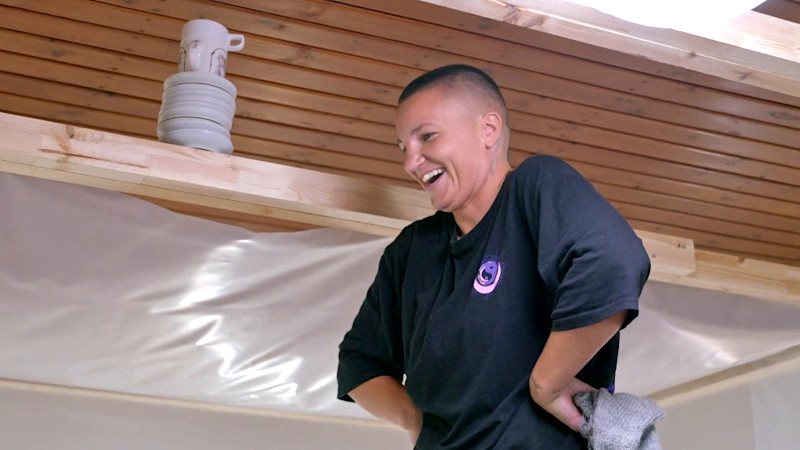Ellu banks on altitude


Ellu thinks over the task wording, and reasons that she can put something underneath her tower before building, to add even more height.
She runs out of the lab and soon returns with a large wicker chair. She initially places the chair on the empty half of the lab table, but then quickly changes her plan: instead of stacking the dishes on top of the chair, she places the chair back on the ground and uses it to help her climb up onto the table. She then carefully stacks all of the small plates and a few of the mugs together, and places them up on one of the lab’s ceiling beams.
Ellu voluntarily ends her attempt early, carefully climbing back down off of the table (Pirjo later jokes that Ellu had taken quite a risk with her method, as ‘invisible Elina’ could have easily pulled her off of the table).
In the studio, Ellu defends her interpretation of the task brief, claiming that ‘highest tower’ could mean “tower that is the highest up” (the word ‘korkea’ used in the task brief can be used to refer to object height, as well as altitude so, while Ellu’s interpretation of the task brief is unusual, it’s not overtly incorrect).
Jaakko pushes against Ellu’s logic, asking whether if he were to take a Bajamaja (a brand-name porta-potty) to the top of Mount Everest, would he really have the highest Bajamaja in the world? Ellu insists that he would, but Jaakko rejects her thinking.
Ellu’s tower is therefore measured at just 25cm, and she earns last place, but no points, after Jaakko deducts a point when it is revealed that Ellu had touched one of the mugs with her non-socked hand.
When Ellu pleads for a bonus point, arguing that she had risked her safety to build her tower, Jaakko threatens to remove a point from her overall episode score in retaliation, so she accepts his judgement.
(Written by Jenny R and proofread by Karl Craven)
(Illustrations collected by Jenny R and adjusted by Karl Craven)


